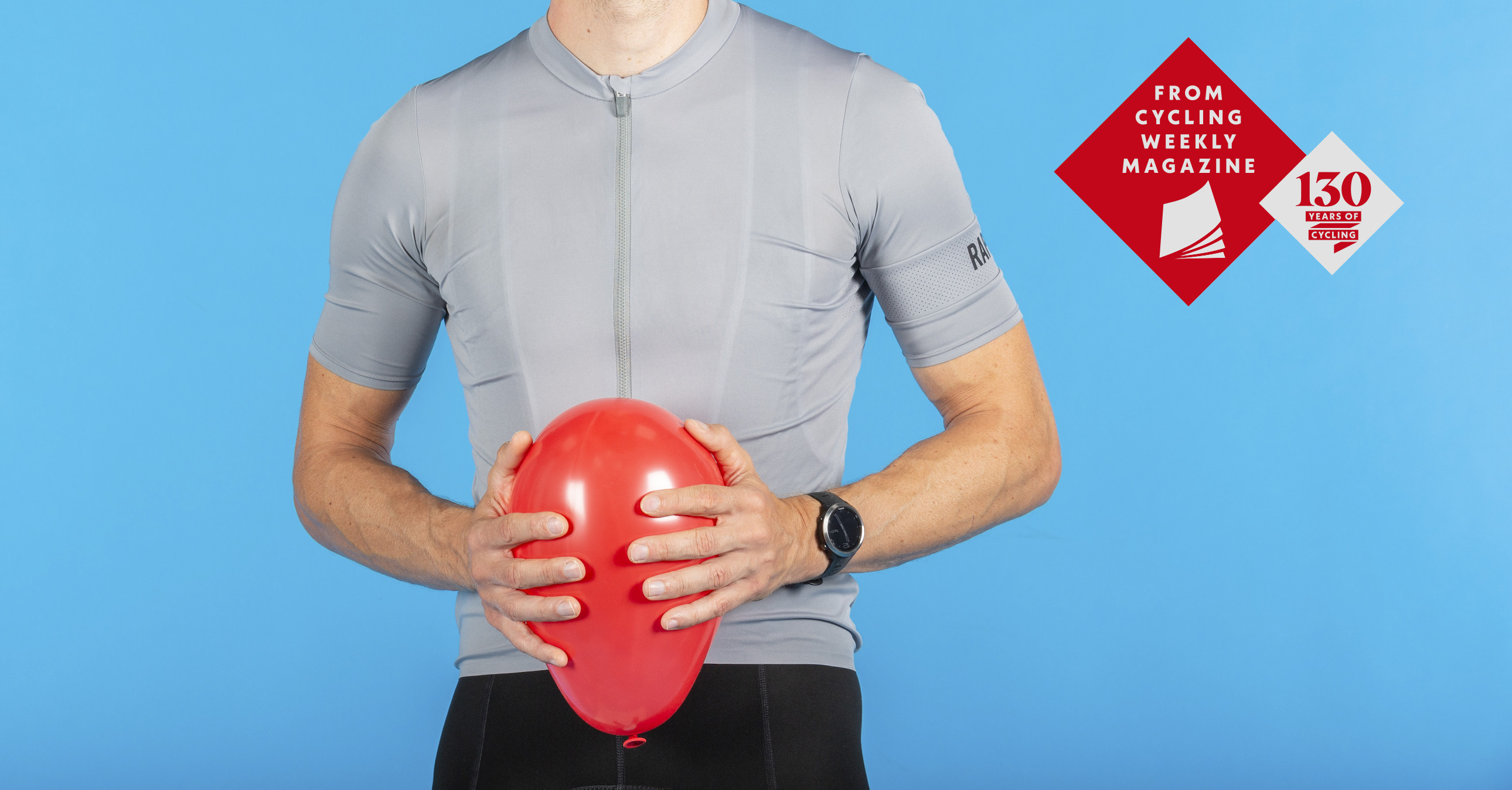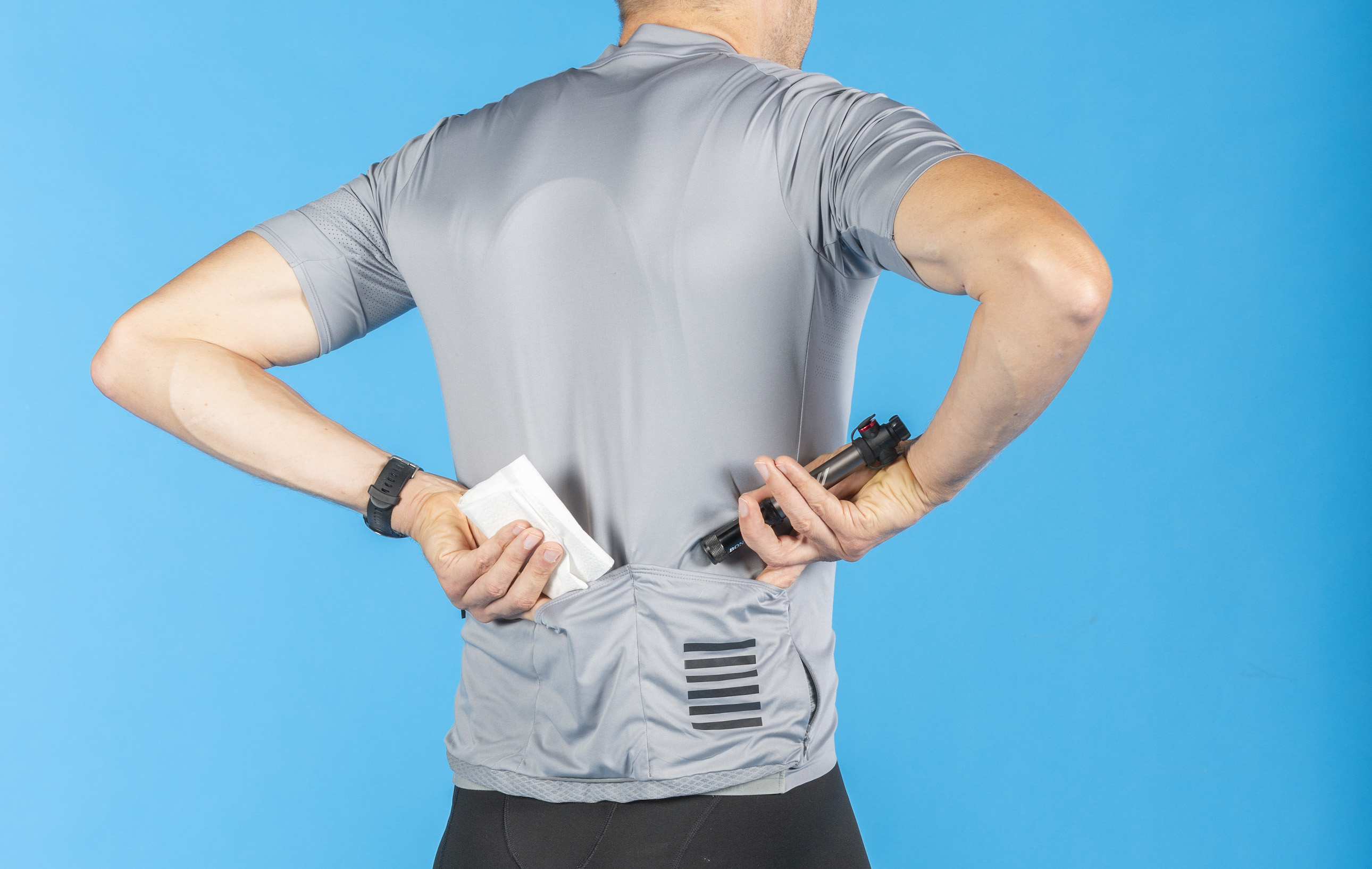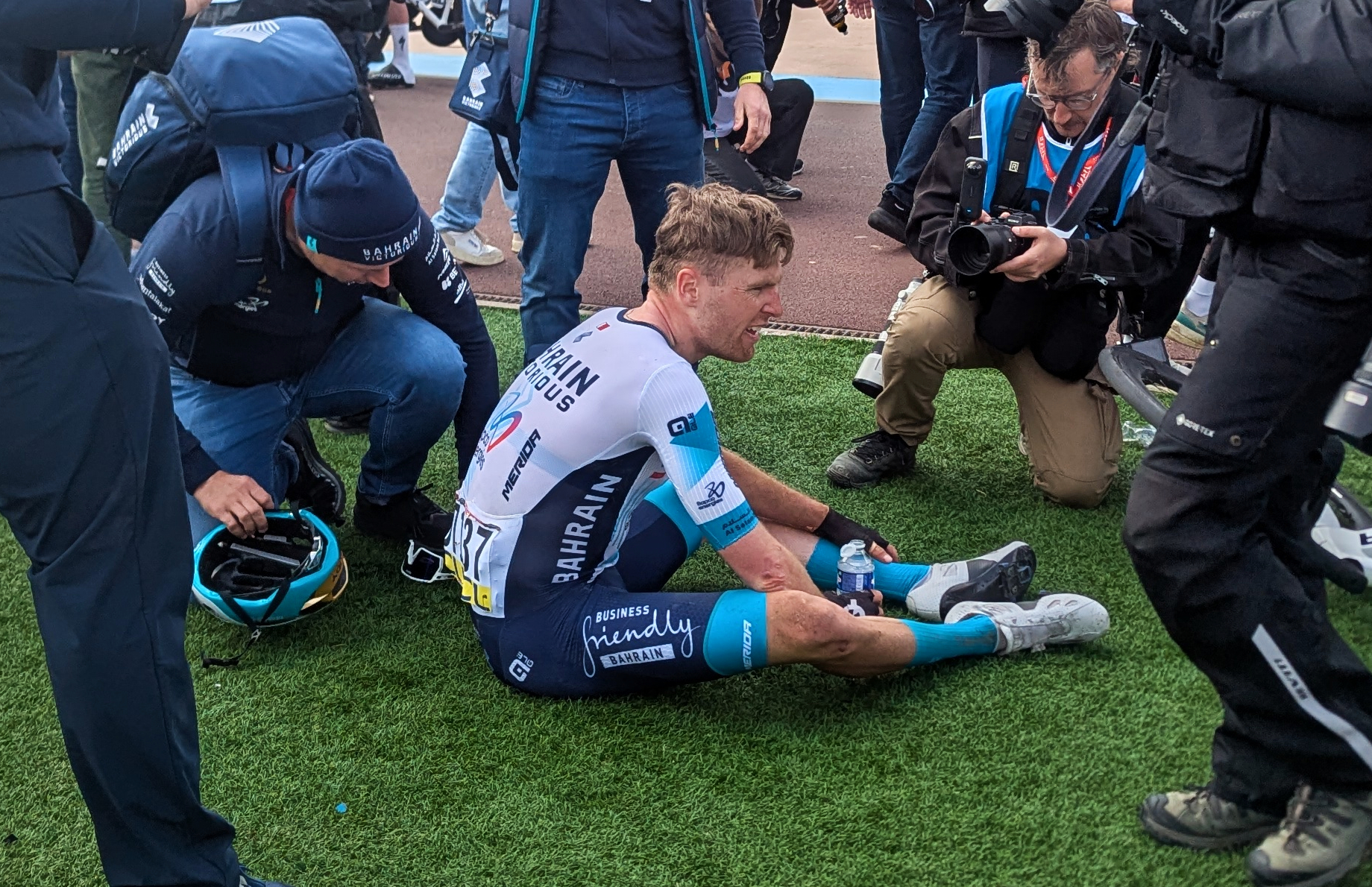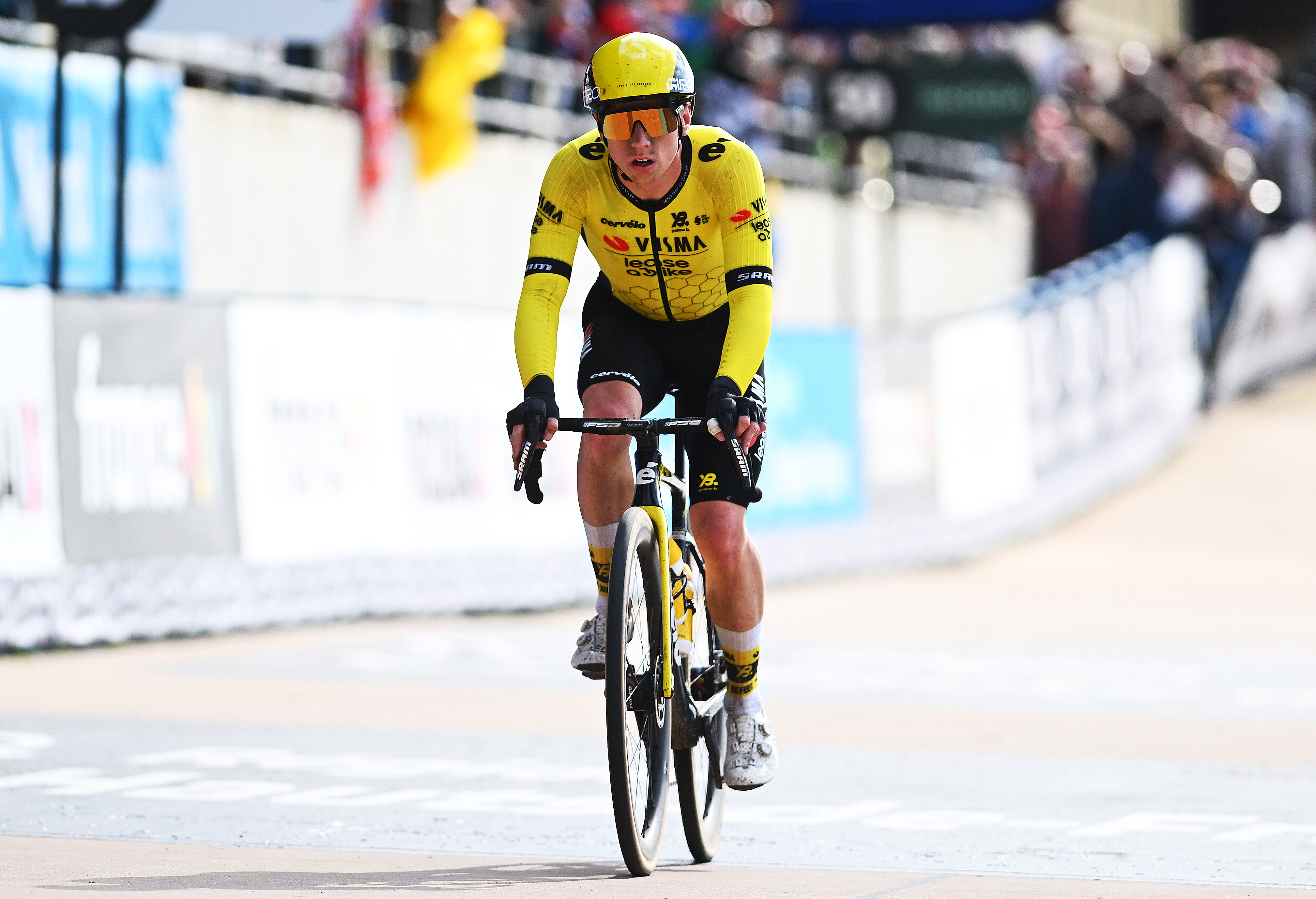We need to talk about... Gut problems
In the first of a new silence-breaking, awareness-raising series about taboo issues affecting cyclists, we lift the lid on chronic gut problems


“If it flares up and my stomach disagrees with what I’ve put inside it, I know I’m ruined,” says Mel Sykes. “For seven years, if I’d eaten something I shouldn’t have on a Thursday, I wouldn’t be able to ride on the Saturday because I would be so bloated that I wouldn’t be able to get any fuel in me for the ride. Until two years ago, I couldn’t ride for more than two hours because I couldn’t find any food that would sustain me.”
Sykes, 38, is a committed amateur club cyclist and won’t let digestive issues hold her back. The Yorkshirewoman rides 6,000 miles a year and competes in ultra-marathon and Ironman races too. The symptoms she describes above are the effect of irritable bowel syndrome (IBS), a chronic intestinal condition that disturbs the functioning of the digestive system. Conservative estimates suggest 10% of the British population have IBS, and some reports put the prevalence as high as one in five.
In spite of its high prevalence within society and its impact on sufferers, IBS is a topic that few ever speak about, partly owing to embarrassment around the unpleasant symptoms, which include bloating, diarrhoea and constipation. We know that many cyclists are affected, so it’s incumbent on us all to gain awareness and be sensitive to fellow riders who may seem to have inconvenient dietary and/or toilet habits.
“We have to break the poo taboo – it’s really important we do,” says Julie Thompson of the charity Guts UK. “Half of people will wait six months before going to a doctor about these issues, but if the underlying cause is a serious condition like cancer, that can make the difference between curative treatment and not.”
Difficult to diagnose
Many gut issues, including ulcerative colitis, Crohn’s disease, coeliac disease and pancreatitis, cause similar symptoms, making them challenging to diagnose. These conditions can affect anyone and may appear unexpectedly at any time and at any age. Though there is no cure, for many there are effective treatments. In addition to the aforementioned diarrhoea, constipation and bloating, IBS often also causes stomach pain and flatulence. An episode of IBS can last for up to three days, and is triggered when the colon becomes hypersensitive, causing the bowel muscles to spasm.
Manageable for most, IBS manifests differently in each individual, but most go through an arduous, lengthy process to figure out how to live with it. Sykes went on a seven-year journey, chronicling her dietary intake in a food-by-food process of elimination. “I have a very boring diet: white rice, white bread and potatoes; veg only if it’s boiled to within an inch of its life, thus removing all fibre,” she reveals. “What most consider a healthy diet is crippling for me. I can’t eat any gels or bars, so my mid-ride snack is part-boiled white rice or eggs.”
There are three types of IBS: diarrhoea, constipation, or a mixture of both. Sykes falls into the latter category. “My problem can be not going to the toilet at all or going too much. It depends on what I have eaten. If I have a meal with raw onion skin on it, or something else that the body has to fight to digest, it clogs me up and I might go three days without going to the toilet. If something kicks it off, it can be two weeks before it properly settles down.”
Get The Leadout Newsletter
The latest race content, interviews, features, reviews and expert buying guides, direct to your inbox!
Sykes is not the only cyclist to have endured a torrid time with IBS. London-based Jasper Cole (not his real name) was mystified by the symptoms he began experiencing. Experts have theorised that IBS may be hereditary, genetic, or the result of food poisoning or gastritis – but cannot be sure. “One of my first episodes was walking from Oxford Circus to the Rapha Club House in London to have a few beers and watch a race, and I didn’t make it because I had to urgently find a bathroom,” 34-year-old Cole remembers.
On a day-to-day basis, sufferers are almost always thinking about the behaviour of their stomach. Kirsten Jackson is an IBS sufferer and dietician who runs the popular the.ibsdietitian Instagram account. She says: “It’s not considered a serious condition because you can’t die from it, so it gets downplayed. But it impacts people from the moment they get up to going to bed. They’ll skip meals ahead of a work meeting in case they have a loss of control; they’re stressed about going on a plane in case they can’t use a toilet when they need to; on a personal level, it’s a barrier to building intimate relationships for fear of embarrassment.” Its effect on cyclists is profound, too. “Initially, it really hit my cycling and my confidence,” Cole adds. “For two months I didn’t cycle outside because I was worried it would flare up while riding, and I was always having to think about the nearest loo. I was embarrassed about it: I didn’t want to bother anyone by stopping the ride to go to the toilet.”
Cole sought help from Harley Street clinics to help diagnose the issue, and now manages the condition by taking two tablets in the morning and two in the evening, but is still adversely affected from time to time. He explained to me how he has to avoid some on-the-bike fuelling products, and now sticks to bananas during events, though medication allows him to follow a generally normal diet.
Experimentation is key: Sykes’s food logs now clearly indicate what her body can tolerate, while Cole used long indoor Zwift sessions during lockdown to successfully reintroduce caffeine into his diet and try different energy bars, adding: “I knew that if it went wrong, there was a toilet a few steps from me. Now I know the Veloforte gels work for me.”
IBS is not entirely unlike the regular digestive disturbances we all experience from time to time, in the sense that these two riders’ troubles provide us with an important reminder: it’s well worth trialling different foods and products prior to your target event to find out what works best for you and to guard against adverse digestive effects.

Eliminating FODMAPs
Speak with anyone who has IBS and they will bring up the importance of restricting or eliminating FODMAPs, which stands for fermentable oligo-, di-, mono-saccharides and polyols. These are short-chain carbohydrates that are harder to digest and disrupt the digestive system in sensitive individuals. Common FODMAPs foods are fruit, dairy products and wheat and barley. Jackson adds: “An athlete [with IBS] really needs to work with a dietician to establish what is best for them. The main thing is to avoid FODMAPs or reduce them. The idea that having a healthy diet is a sufficient way to manage it is condescending. It’s more complicated and nuanced, but with the right plan, based on the person’s lifestyle, having IBS and still being a good athlete is definitely manageable.”
The good news is that pushing the pedals generally has a positive effect on the stomach. “Cycling can help alleviate problems, 100%,” says Jackson. “We know that exercise is good for the gut: exercising outside is good for gut bacteria and the microbiome; the Vitamin D we get from being outside is linked to gut health, and the social impact is as well.” Also positive is that so-called ‘runner’s diarrhoea’, where the act of running upsets the gut leading to toilet emergencies, rarely affects cyclists. Jackson explains: “If someone has a sensitive gut, the hormonal changes that redirect blood from the gut to the muscle during exercise can upset the digestive system. But cycling rarely has this effect.”
Sykes and Cole agree that cycling has remained a positive part of their lives; for Sykes, it’s motivated her not to give in to the lifelong condition. “If I didn’t have my hobbies and my bike, there’d be nothing to keep me going,” she says. “The only reason I stick to the diet I stick to is because when it gets to the weekend, I want to be able to get out on the bike and have a pleasant experience. If I wasn’t bothered about riding on Saturday, maybe I’d have a Friday night burger and chips – then I’d be ruined for four days!”
Cole has learned to control his social anxiety around the condition. “At the end of the day, no one minds having a pit stop in a petrol station if I need the loo,” he adds. “At first, I was hesitant to go out on an outside ride solo, let alone with friends, but I always feel better after a ride.” In this sense, openness, understanding and patience can make a transformative difference, as they did for Cole. “I had to change my mindset and realise I wasn’t bothering anyone,” he adds. “We [who have IBS] are self-conscious about it, but it’s not our fault, and actually more people have stomach problems than we realise. Riding in the fresh air, socialising... it’s far better than being inside. There’s a way around it.”
Real guts racing: ‘My team will show that IBD needn’t be a barrier’
“There are a few who are very open, promoting awareness and are ‘out’ about it. The rest are silent,” says Scottish road and track rider Nico Anelli. “I want to show that there are cyclists with the answers and show that there is a positive outcome.”
Twenty-three-year-old Anelli, a marketing student from Dundee, was diagnosed with ulcerative colitis, a form of inflammatory bowel disease (IBD), in 2017. The condition causes inflammation and ulcers in the digestive tract. It affects about one in 500 people – including 2019 Tour of Flanders winner Alberto Bettiol (EF Education-Nippo) who was diagnosed last winter.
Determined to keep racing despite the condition leading to inconsistent results, Anelli decided to create Real Guts Racing, a team that aims to spread awareness of IBD. It’s currently a one-man outfit but Anelli is soon to make an attempt on a prominent cycling record, which he hopes will propel the team into the spotlight. He also has plans to bring in non-attached riders to form part of a composite team under the Real Guts Racing banner in stage races. He is using Zwift to increase his team’s presence and its associated message.
“I want to show that there are answers and it is possible,” he continues. “It seems to be widely assumed that cycling and IBD are not compatible because of fuelling and recovery concerns, but I’m showing that that’s not the case. With Real Guts Racing, I aim to change the narrative.”
How you can help riders with IBS
If you’re riding in a group of 10, the chances are that at least one of them has IBS. There are a few small but meaningful things non-sufferers can do to help these riders
■ To ease any self-consciousness, announce at the start of the ride that toilet breaks are not a hindrance and that the group will stop and wait whenever it’s necessary to do so.
■ Don’t take offence or show surprise if the bar or gel you offer is declined; even better, show your awareness that it may be unsuitable for them.
■ At races and events, organisers should provide gluten-free and allergenic food. Do not belittle specific dietary needs – they are not mere fussiness.
■ Anxiety and stress can provoke a negative reaction in the gut. If you can encourage and support a rider with IBS, it may help them physically as well as psychologically.
■ Never interrogate or criticise someone else’s diet – you’ll likely do more harm than good. They themselves know best how to manage their condition.
For further help and support, visit Guts UK: https://gutscharity.org.uk/

Thank you for reading 20 articles this month* Join now for unlimited access
Enjoy your first month for just £1 / $1 / €1
*Read 5 free articles per month without a subscription

Join now for unlimited access
Try first month for just £1 / $1 / €1
A freelance sports journalist and podcaster, you'll mostly find Chris's byline attached to news scoops, profile interviews and long reads across a variety of different publications. He has been writing regularly for Cycling Weekly since 2013. In 2024 he released a seven-part podcast documentary, Ghost in the Machine, about motor doping in cycling.
Previously a ski, hiking and cycling guide in the Canadian Rockies and Spanish Pyrenees, he almost certainly holds the record for the most number of interviews conducted from snowy mountains. He lives in Valencia, Spain.
-
 'I'll take a top 10, that's alright in the end' - Fred Wright finishes best of British at Paris-Roubaix
'I'll take a top 10, that's alright in the end' - Fred Wright finishes best of British at Paris-RoubaixBahrain-Victorious rider came back from a mechanical on the Arenberg to place ninth
By Adam Becket Published
-
 'This is the furthest ride I've actually ever done' - Matthew Brennan lights up Paris-Roubaix at 19 years old
'This is the furthest ride I've actually ever done' - Matthew Brennan lights up Paris-Roubaix at 19 years oldThe day's youngest rider reflects on 'killer' Monument debut
By Tom Davidson Published